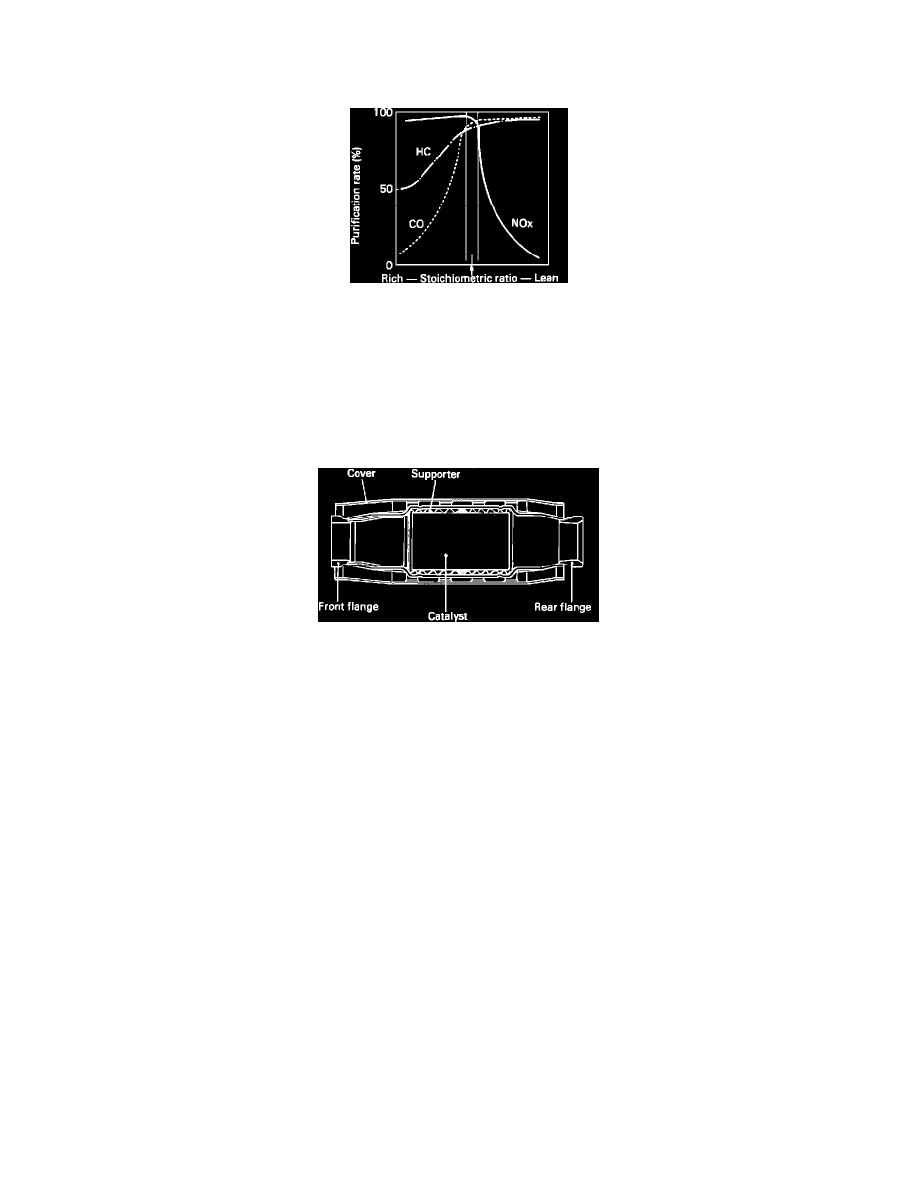Summit Wagon FWD L4-1795cc 1.8L SOHC (1994)

Catalytic Converter: Description and Operation
PURPOSE
The catalytic converter is a three-way catalyst that removes CO, HC, and NOx from the exhaust.
Converter Efficiency VS. Stoichiometric Fuel/Air Ratio
OPERATION
Optimum performance of the catalytic converter is obtained with a fuel-air mixture ratio of 14.7 to 1 ± 1% and exhaust gas temperatures between
400 to 800 degrees C (750 to 1500 degrees F).
Engine malfunctions such as misfiring can result in exhaust temperatures exceeding 1400 degrees C (2500 degrees F). These extreme high
temperatures can cause the substrate to melt, destroying the converter. The use of leaded fuels will coat the catalyst preventing catalytic action.
Excessive oil residues in the exhaust have the same effect.
Fig. 38 Underfloor Catalytic Converter
CONSTRUCTION
The converter has a monolythic type, ceramic honeycomb. Platinum and rhodium catalysts cover the surface.
